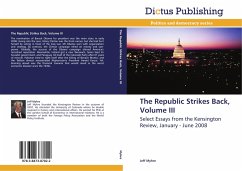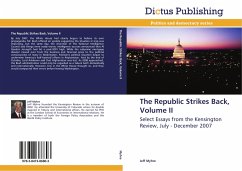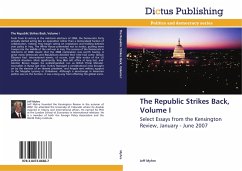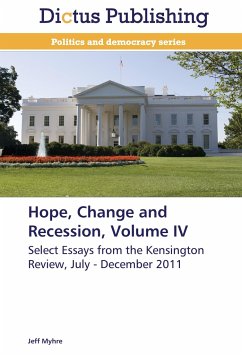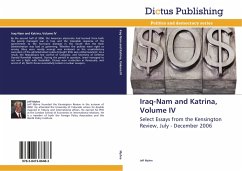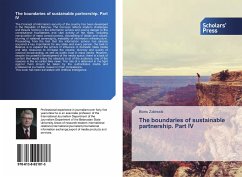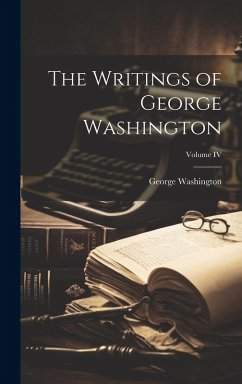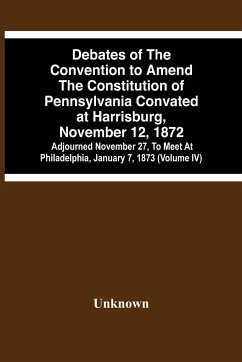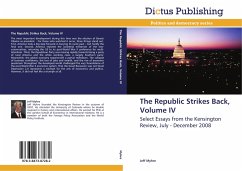
The Republic Strikes Back, Volume IV
Select Essays from the Kensington Review, July - December 2008
Versandkostenfrei!
Versandfertig in 1-2 Wochen
33,99 €
inkl. MwSt.

PAYBACK Punkte
17 °P sammeln!
The most important development during this time was the election of Barack Obama as president. . For those who watched it occur, three things stand out. First, America took a big step forward in burying its racist past - but hardly the final one. Second, America rejected the unilateral militarism of the neo-conservatives, returning the US to its post-World War II preference for multi-lateralism. Third, the Republican Party was moving rapidly towards being a party of rural America and the white working class, a largely Southern party. Meanwhile, the global economy experienced a partial meltdown...
The most important development during this time was the election of Barack Obama as president. . For those who watched it occur, three things stand out. First, America took a big step forward in burying its racist past - but hardly the final one. Second, America rejected the unilateral militarism of the neo-conservatives, returning the US to its post-World War II preference for multi-lateralism. Third, the Republican Party was moving rapidly towards being a party of rural America and the white working class, a largely Southern party. Meanwhile, the global economy experienced a partial meltdown. The collapse of business confidence, the loss of jobs and wealth, and the rise of economic pessimism throughout the developed world challenged the very foundations of the post-World War II economic system. That the Great Recession was not Great Depression 2.0 represents a triumph for the arts of economics and politics. However, it did not feel like a triumph at all.



